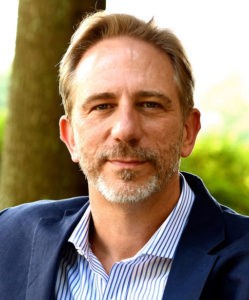I write this post on Aug. 6, the 76th anniversary of the U.S. atomic bombing of Hiroshima, which destroyed that city and killed 70,000 to 80,000 people. Today, Aug. 9, is the anniversary of the day the U.S. bombed Nagasaki, killing between 40,000 and 80,000 people. The Japanese surrendered on Aug. 14, finally bringing an end to World War II.
The United States had become the first nation to use nuclear bombs, weapons of mass destruction unlike any that had been seen before. Ethical debate over the use of such horrific weapons was (and remains) forestalled in this nation by righteous indignation over U.S. losses during World War II, grotesque German and Japanese war crimes, and the arguable but constantly repeated claim that atomic warfare was the only way to force the Japanese to surrender. Yet the fact remains that we are the only nation ever to use atomic weapons.
Even before the ashes settled over Japan, the U.S. and the Soviet Union had embarked on a tense superpower tango — the so-called Cold War — involving the accumulation of ever-more, and ever-more-powerful weapons of mass destruction. The period from 1945 to 1991 became dominated by global anxiety over what might truly become a war to end all wars, an all-out global nuclear Armageddon.
“The period from 1945 to 1991 became dominated by global anxiety over what might truly become a war to end all wars, an all-out global nuclear Armageddon.”
In this country, especially after the 1960s, moral debate polarized between those mainly working to prevent the use of nuclear weapons and to negotiate arms reductions, over against those Cold Warriors mainly emphasizing the evil nature of the Soviet regime and the need to hold steady. Both sides claimed victory when the Soviet Union collapsed in 1991 without any nuclear conflagration having occurred.
My story and the influence of the Cold War
I was born in West Germany in June 1962. By fall 1962, my young parents were back in Vienna, Va., just outside Washington — and just in time for the Cuban Missile Crisis of October 1962, a near-miss nuclear confrontation between the U.S. and the Soviet Union that might well have wiped out my baby self, my parents, and many others if those missiles had been unleashed.
Perhaps it is little wonder, then, that when I became a Christian ethicist in the 1980s, I joined the peacemaking and nuclear abolitionist side of the ethical debate. I worked in the mid-1980s for a local peacemaking group, and I had planned on writing a dissertation on Christian ethics and nuclear weapons until the Soviet Union collapsed right in the middle of my program.
For a brief period afterward — really, the whole decade of the 1990s — the main moral issue Christian ethicists wrestled with in U.S. foreign policy was how to restrain the lone superpower in a “unipolar,” U.S.-dominated world.
For those of us leaning left in this discussion, we were heirs to a long tradition of doubting U.S. claims to virtue during the Cold War period, challenging our nation’s accumulation and readiness to use tens of thousands of nuclear weapons, as well as our proxy fights and direct military interventions in suffering lands like Nicaragua and Vietnam. The debacle of the Vietnam War was the fundamental event for those doubting U.S. virtue, amply seeded by disillusioned veterans of that conflict.
“We were heirs to a long tradition of doubting U.S. claims to virtue during the Cold War period.”
Especially during the 1990s and early 2000s, many Christian theologians and ethicists wrote about the U.S. as the new Roman Empire, the aggressive global hegemon striding around the world trying to work our will, always with apparent indifference to the suffering of the populations we were supposedly protecting. The implicit or explicit demand of these voices was to end U.S. imperialism, shrink the U.S. military, reduce or eliminate nuclear weapons, and return to a much more modest posture of territorial self-defense.
The rise of Islamist extremism and the attacks of Sept. 11, 2001 — the 20th anniversary of which comes up very soon — changed the U.S. foreign policy posture and debate once again. The aggressive Bush/Cheney administration decided not only to go after Al Qaeda and its Taliban sponsor in Afghanistan, but also to invade Iraq and topple Saddam Hussein. The Congress obliged with an open-ended Authorization of Military Force that has remained in effect for 20 years.
Notable during this period as well was the resort to brutality and torture against U.S.-captured prisoners in this open-ended “War on Terror.” Fighting against this authorization of torture by the country once known for advancing human rights became a key moral agenda for many of us in the first decade of the 21st century.
A disorienting new era now
Today, it seems we have entered a disorienting new era in U.S. foreign policy. Nuclear weapons still exist and still threaten humanity, but superpower nuclear confrontation seems a remote threat. The greater issue is nuclear proliferation in multiple countries, such as North Korea, Iran, India and Pakistan. Meanwhile, in an exceedingly rare example of Trump-Biden consensus, the U.S. is finally withdrawing its troops from Afghanistan and Iraq. The Congress is set to end an Authorization of Military Force, reportedly for the first time in 50 years. While classic foreign policy hawks of the John McCain type may still be found, they are being overwhelmed by what looks like a 70% bipartisan opinion that it is time to end the post-9/11 wars and, in general, to attend to problems at home rather than abroad.
The U.S. remains pestered by cyberwarfare, psychological operations and other kinds of Russian mischief, while the steady rise of China likely means a bipolar, two-superpower world is on its way or has arrived. For now, though, U.S. military action looks like it will mainly consist of targeted pinprick attacks from drones, and the stealthy heroics of handfuls of special forces, rather than big armies on the ground. Moral debates about cyberwarfare, drone strikes and special forces appear to be the province of specialists. Hardly anyone is thinking about the ethics of U.S. foreign policy as a remarkable, basically bipartisan, pulling back is underway.
“Hardly anyone is thinking about the ethics of U.S. foreign policy as a remarkable, basically bipartisan, pulling back is underway.”
Reading essays, statements and books that mainly worried over U.S. aggression and imperialism reminds me how much has changed today. Yes, the U.S. still has troops all over the world and still has a massive military budget. But we also appear to be a nation bled dry by too many lives lost, too many soldiers’ psyches maimed, and too many trillions spent with dubious results.
Still, I want to suggest that there are ethical issues associated with abandoning earlier commitments, not just with keeping them. The people of, for example, eastern Ukraine, South Korea and Taiwan are going to want to know that they will not be left to the mercy of their enemies. The women and girls of Afghanistan will not do well under the tyranny of the Taliban when it overruns that entire sad nation once again.
Is there still a constituency in this country for U.S. commitments to vulnerable peoples like these? Might there be ethical obligations that Christians feel in relation to populations the United States once promised to protect?

David Gushee
David P. Gushee is a leading Christian ethicist. He serves as Distinguished University Professor of Christian Ethics at Mercer University and is the past president of both The American Academy of Religion and The Society of Christian Ethics. He’s the author of Kingdom Ethics, After Evangelicalism, and Changing Our Mind: The Landmark Call for Inclusion of LGBTQ Christians. He and his wife, Jeanie, live in Atlanta. Learn more or subscribe to his newsletter at davidpgushee.com and follow him on Facebook, Twitter or Instagram.
Related articles:
Despite size, Nagasaki Cross inspires reflection on Christian unity, breaking barriers
Pastor: ‘Protecting borders’ was also the excuse for detention of Japanese-Americans
How to read the Cuban street protests in light of U.S.-Cuba history | Analysis by Ken Sehested


